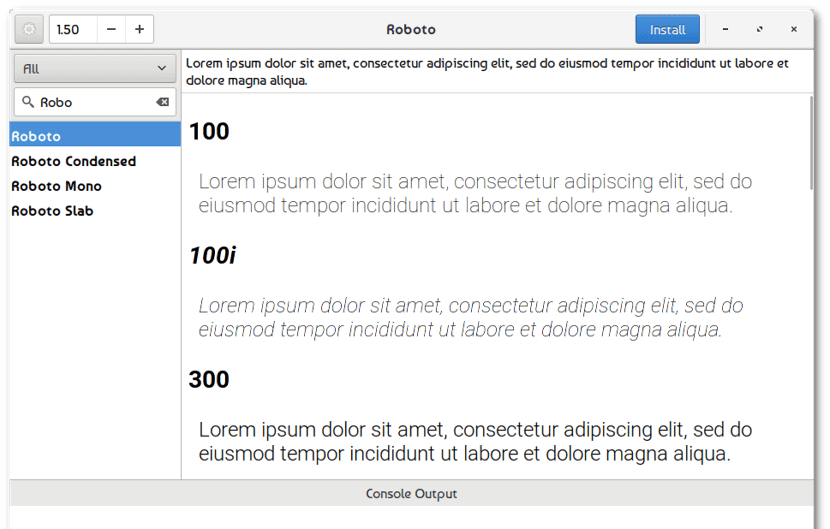
Ubuntu allows you to customize the operating system in a way that not all proprietary operating systems allow. One of the things that is very easy to do is customizing text fonts. A very simple task and one that offers great customization, although some may not believe it.
Some time ago we talked about doing this customization task manual way and for advanced users, but today we are going to talk about a simple method for novice users who want to customize text fonts without having much knowledge.
In this case we are going to use the tool Font Finder, a current application written with Rust that offers us a simple system and fast installation of new text fonts in Ubuntu. Font Finder is a tool that starts from Type Cather but updated and focused on novice users. Once we turn on Font Finder we can find a window divided into two parts, in one part the names of the text fonts appear, which are found in Google Fonts, a service that is connected to Font Finder. And in the other window examples of that text source.
Font Finder is interesting because allows us to enlarge and reduce the text to see how the font is. At the top, next to the menu bar, several buttons will appear for actions that we can do, such as installing the font, uninstalling the font, etc ... Actions that will manage everything for us, with the push of a button.
Regrettably, Font Finder is not in the official repositories but we have it in FlatHub. So, in order to install Font Finder we have to have the flatpak system in our Ubuntu. In this article We talk about how to do it.
And once we have it done, we have to go to this website and press the install button, after which Font Finder will be installed in our Ubuntu. As you can see, the system is simple and in return we can have an interesting and unique customization of our Ubuntu.
Thank you, that is very useful.